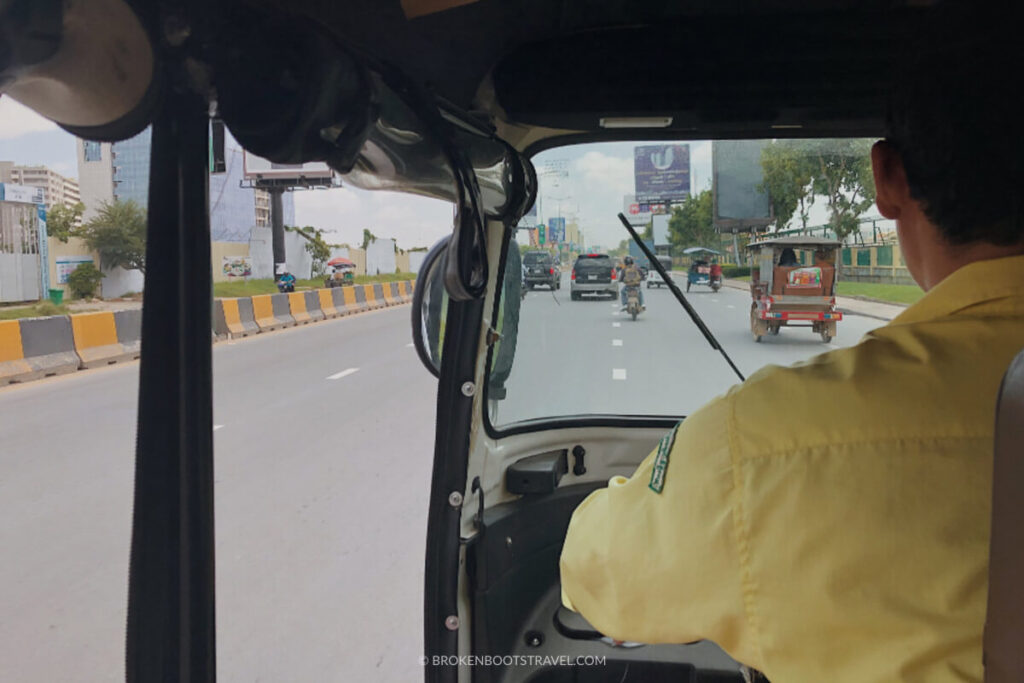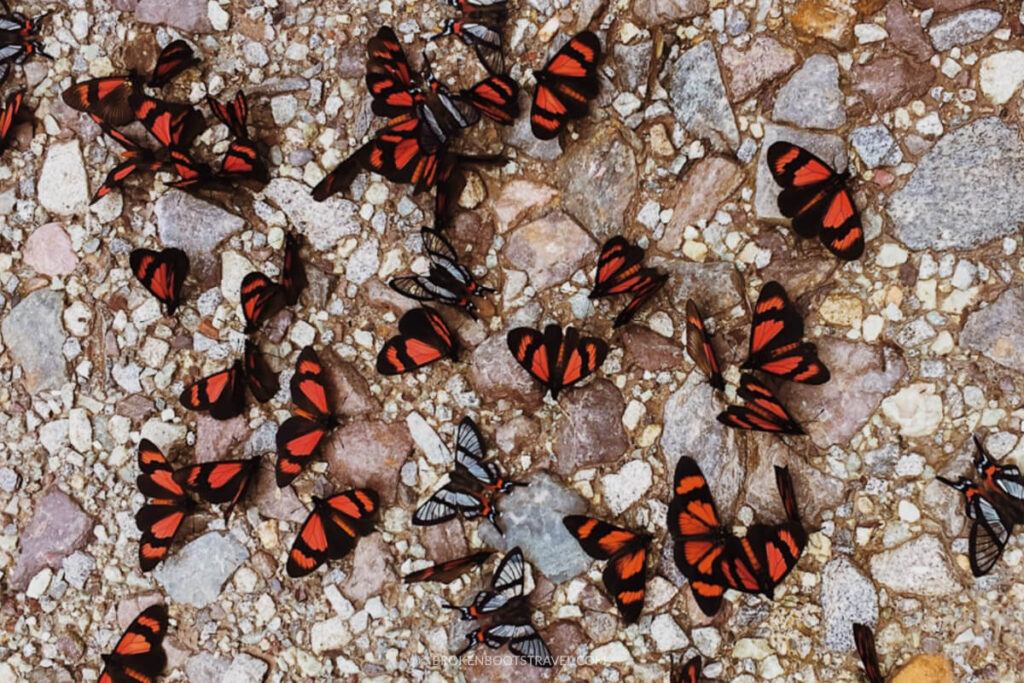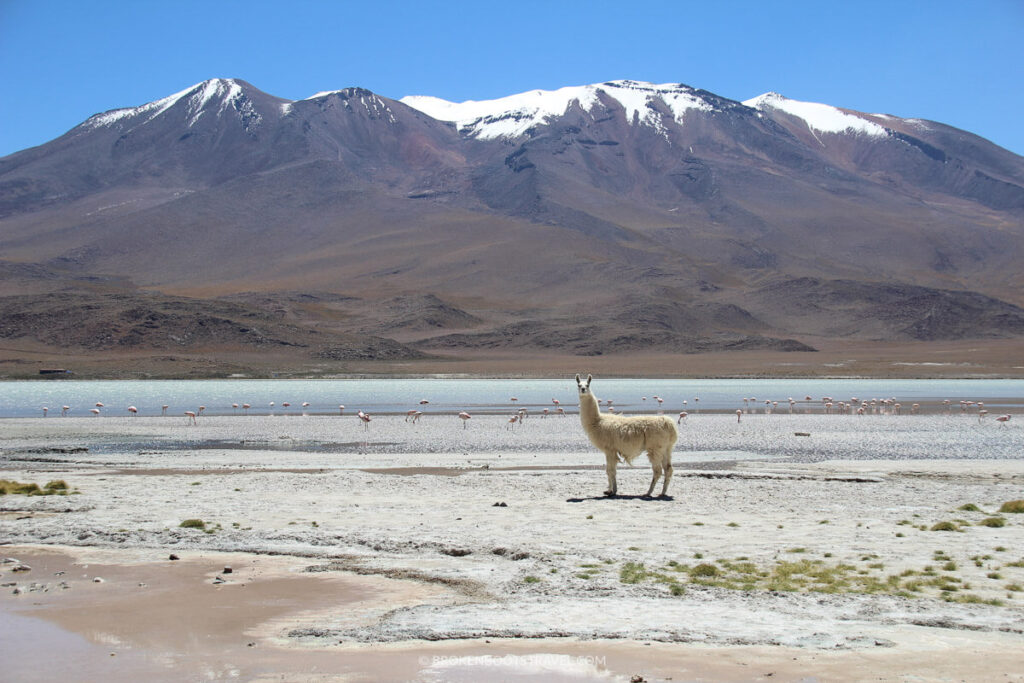“Have you ever been on a motorcycle before?” he asked me.
It was like the climactic point of any romantic comedy, when the heroine must choose whether or not to ride off with the shaggy-haired heartthrob on the back of his motorbike. This scene often represents a turning point, a former life of too-tight ponytails and following the rules left behind for one of motorcycle rides and combat boots.
In my case, however, the asker was my sweet friend Pon, one of my first acquaintances in the city of Phnom Penh. With his closely cut hair and kind eyes, Pon didn’t quite resemble the Chad Michael Murrays most often seen in these instances. Furthermore, he was wearing loafers.
I’d met Pon only days beforehand, upon my arrival in Phnom Penh. He had been working the desk at my hostel, and upon taking me upstairs to the room had revealed a secret.
“It’s my first day here,” he whispered, chuckling to himself. “You think I’m doing ok?”
I gave him a resounding yes, and he smiled at me, showing rows of silver braces on his teeth. He told me he wanted a friend to practice English with, I told him I wanted a friend in the city. Days later, we were seated across from each other at a corner cafe.
Pon was reading an English newspaper, his eyes intently focusing on every word before moving on to the next. I tried to imagine the conversion from Khmer to English in my head, first exchanging one alphabet for the other, and only then working to form the right words. I could hardly mutter two words in Khmer, let alone understand the loops and squiggles that combine to form words, sentences, and stories.
I decided to try out one of the words I did know. “Suostei” I tested, my pitch rising on the final syllable until it sounded more like a squeak.
Pon looked up from the paper and laughed. “Hello Ginna” he said, shifting his cup on the table. Where his cup had been now sat a circular puddle of condensation, and as he put his cup down again I could already see more water droplets forming in the heat. Pon was wearing a white button down, already almost transparent from the sun glaring on his back all day, and shiny black loafers with brass details.
I pointed to his shoes. “So dapper!” I told him.
“Dapper?” He raised his eyebrows at me, a question mark forming on his brow.
“Uh, fancy! Handsome! Beautiful!” I wracked my brain for any more adjectives I could use to explain, but Pon was already laughing to himself.
“Dapper!” he exclaimed, pointing to his shoes. “It was picture day at university. We all look dapper!”
I asked Pon about his life in Phnom Penh. He’d been here six years he told me, studying at a university in the city. Most of his family, however, still lived in the small seaside province of Kampot, where Pon had grown up.
“Except my sister,” he said, “She live in the USA, like you! She speaks great English, I want to speak like that.”
He made some clicks on his computer, and then there she was. One photo showed her laughing on a California beach. In another she had short hair and sunglasses, goofing off in the webcam. A third showed her here in Cambodia, alongside a younger, skinnier version of the Pon sitting across from me.
Pon was smiling. “She came to visit 2 years ago,” he said, “We’re very close, I talk to her every day.
I thought of my own sister, with her long blonde hair and quiet manner. She’s quite my opposite in many ways, always wanting to follow the rules while I break them, a dash of logic in my world of spontaneous ideas and wild dreams. And yet, despite her refusal to jaywalk and desire to drive five under the speed limit, there’s not a single soul in the world I love more.
“I get that,” I told him, thinking about Meg on the other side of the world, reading her biology textbook with her cat curled up beside her. “I miss my sister so much.”
He continued scrolling through her photos, his mind obviously wandering. He came across a family portrait, and pointed out his mother, his grandmother, his older brother, and enough cousins that their faces and names all started to get jumbled in my mind in a sea of dark hair and dark eyes. Finally, his finger came back to his sister.
“I can go to university because of her,” he told me. He picked up his cup again, now simply a puddle of melted ice, and took a sip. When he put it back down, he was careful to line up the base with the ring of condensation already on the table. “She’s brave, so so brave.”
When his sister first left for the United States, Pon felt alone for months. He was only a young teenager at the time, used to having his sister as his main companion, and without her he felt a hole in his life that no one else could fill. She worked at a donut shop in town, sending money back to her family across the ocean as she worked long hours to support herself as well. Even with the money she sent back to Cambodia, money that allowed Pon to attend school, wear nice clothes, and drive a car, no money would amount for the loss he felt by not having her around.
That was thirteen years ago. For eleven of those, Pon could only dream of the day his sister would receive her green card, making travel back to Cambodia possible. When it finally happened, he got only a few months with her before her return to California marked another period of uncertainty, as neither Pon nor his sister knew when they’d see each other again.
“I hope this time I get to go to California.” Pon’s eyes nearly closed as he smiled, and laughed to himself for the 37th time. “I bet if I go to Los Angeles, I’ll be famous!”
I laughed along with him. I began to tell him of my recent trip to Los Angeles, but my mind was elsewhere, thinking of my family in the United States. Of my mother, who used to stroke my hair as I cried, of my father, who always made us grilled cheese sandwiches on Sundays, and of my sister, who in her quiet, unobtrusive way, seemed to know more about me than I even knew about myself. None of them perfect, but each of them a contributor to a life of comfort and security, and most importantly, of love. I couldn’t say goodbye to any of them.
I stopped mid-sentence.
“Pon,” I asked, watching his eyes, “How old was your sister when she left for the United States?”
He looked at me over the rim of his glass before setting it back down in the small puddle that had formed on the table. He smiled again.
“Twenty-two.” He beamed at me. “See, I told you she was brave!”
‘Twenty-two,’ I thought. My age.
At twenty two, I am still relying on my mother to help me figure out my tax returns. My college loans are still unpaid, my post-grad plans still a mess, and my trip halfway around the world is a mere escapade, a chance to explore and understand, not stay without prospect of return. Seeing my friends and family again is a matter of when, not a matter of if.
But I want to be brave. So when Pon paid for his drink, walked outside and motioned for me to take the seat behind him on his motorcycle I climbed right on. Gripping his shoulders, I took a deep breath as the night scenes of Phnom Penh sped past us, a blur of neon lights and passion fruit smoothies and bustling tuk tuks. It was a rare cooler night, and though the sun had set, Phnom Penh felt constantly alive.
I felt like the city was coursing through me, a rush of adrenaline heightening the color of the buildings whizzing by. I felt brave, in big and small ways. Small, on the back of the motorbike, big, on the other side of the world.
Most of all, I felt gloriously, unashamedly grateful for my life, for my family, and for my wonderful friend Pon.
LOOKING FOR MORE STORIES?



Looking for more? Click here to find all travel stories from Broken Boots Travel.
Love stories? Subscribe to my newsletter to get my latest updates delivered straight to your inbox every month. One email a month + no spam? Sign me up!
Virginia Taylor (Ginna) is a travel writer and photographer exploring the world until her boots wear through. She’s currently on a mission to explore all 32 departments of Colombia, though she formerly called the Middle East home. Want to know more? Visit the About Page.